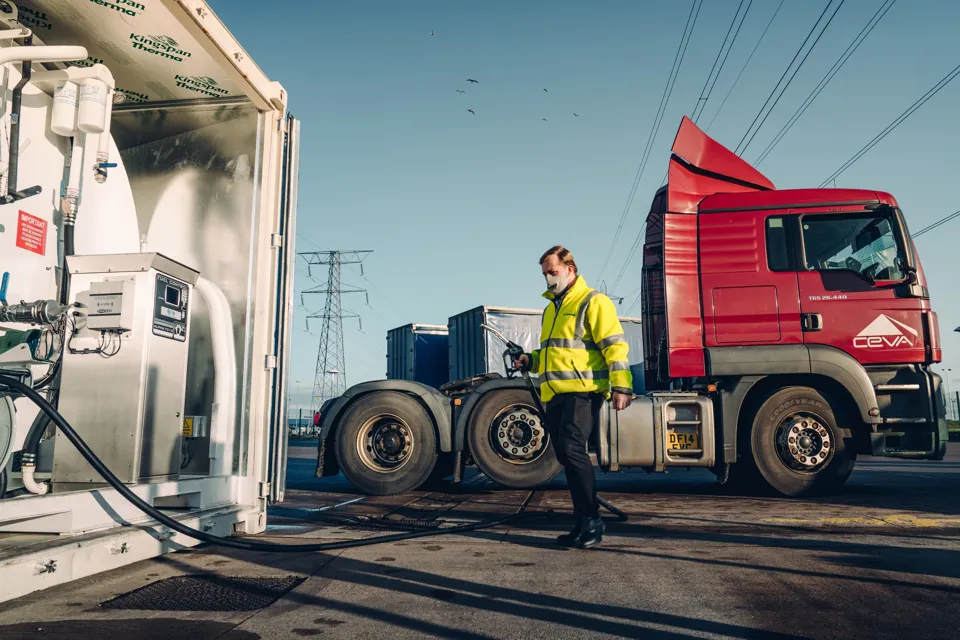Luxury car maker Bentley will fuel its fleet of trucks with Green D+, a fossil-free alternative to diesel made from vegetable oil.
The move is part of its commitment to become carbon neutral by 2030. Following this latest green switch, all of Bentley’s in-house logistics now run on green fuels or electricity.
A 34,000 litre Green D+ tank and pump has been installed at Bentley’s Crewe site. It fuels the company’s ten HGV logistics trucks that transfer parts between its factory and storage depot in Winsford and more than 20 smaller on-site security vehicles and delivery vans.
Peter Bosch, member of the Board for Manufacturing at Bentley Motors, said: “Earlier this month we set out our Beyond100 strategy with a clear target to become end-to-end carbon neutral by 2030 – leading the way forward for the luxury sector – and challenging ourselves to become green pioneers in all aspects of our operations.
“We’re now designing and implementing a strategic roadmap that aims to deliver a positive impact through our ethos of avoiding, reducing and compensating emissions from our site and taking a circular economy approach. Switching our in-house logistics to 100% renewable fuels – which are derived from waste products - is a great example of this approach in practice.”
Hydrotreated vegetable oil (HVO) fuel is made from renewable and sustainable sources such as waste fats, vegetables and oils. Compared to conventional fuel, it can reduce tailpipe CO2 emissions from logistics vehicles by more than 86%, particulates by 80% and nitrous oxide by up to 30%.
The fuel can be used in Bentley’s existing vehicles without any additional modifications, maintenance or changes to operating procedure.
Bentley estimates that its local vehicle movements will utilise around 10,000 litres of biofuel per month. With CO2 emissions reduced by more than 86%, of a total of almost 300,000 miles clocked up by in-house vehicles every year, more than 250,000 of them are now effectively ‘emissions free’.
Bosch added: “Looking ahead, we expect the project to provide us with information and insights which we can apply to our wider inbound and outbound logistics to further reduce our impact on the environment.”





















Login to comment
Comments
No comments have been made yet.